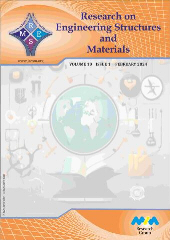Research Article
Predicting flexural-creep stiffness in bending beam rheometer (BBR) experiments using advanced super learner machine learning techniques
Alireza Roshan1, Magdy Abdelrahman2
1Department of Civil, Architectural and Environmental Engineering, Missouri University of Science and Technology, Rolla, MO 65409, U.S.A
2Missouri Asphalt Pavement Association (MAPA) Endowed Professor, Department of Civil, Architectural
and Environmental Engineering, Missouri University of Science and Technology, Rolla, MO 65409, U.S.A
Keywords
Abstract
Flexural-creep stiffness;
Bending beam rheometer;
Long-term pavement performance;
Machine learning super learner methods
BBR test is commonly used to assess the low-temperature performance grade (PG) of asphalt binders, with the flexural-creep stiffness being a critical parameter calculated through this test. However, it has notable limitations that demand attention. The significant amount of asphalt binder needed for test specimens increases costs and resource consumption. Additionally, the complex and time-consuming specimen preparation process hinders testing efficiency and introduces result variability, affecting the accuracy and reliability of PG determinations. In recent years, machine learning (ML) has emerged as a promising substitute for predicting various engineering values. In this study, the primary focus was on harnessing super learner (SL) techniques to predict the creep stiffness of asphalt binders. The SL approach combines multiple ML algorithms to enhance predictive accuracy and reduce individual model biases. Bagging, boosting, and stacking algorithms were employed in the construction of these prediction models. To conduct the investigation, data from 1350 samples sourced from the Long-Term Pavement Performance (LTPP) website were utilized to explore the influence of six crucial variables on the creep stiffness of asphalt binders. The proposed method demonstrated high accuracy, nearing 90% in the coefficient of determination. The Stacking model achieved a low Mean Absolute Percentage Error of 2.86% and robust Prediction Accuracy of 97.14% for randomly selected data points. Furthermore, the sensitivity analysis highlighted the significance of distinct input variables in influencing the creep stiffness of asphalt binders. Notably, the test temperature emerged as the most influential factor affecting creep stiffness, according to the conducted study.
© 2024 MIM Research Group. All rights reserved.

